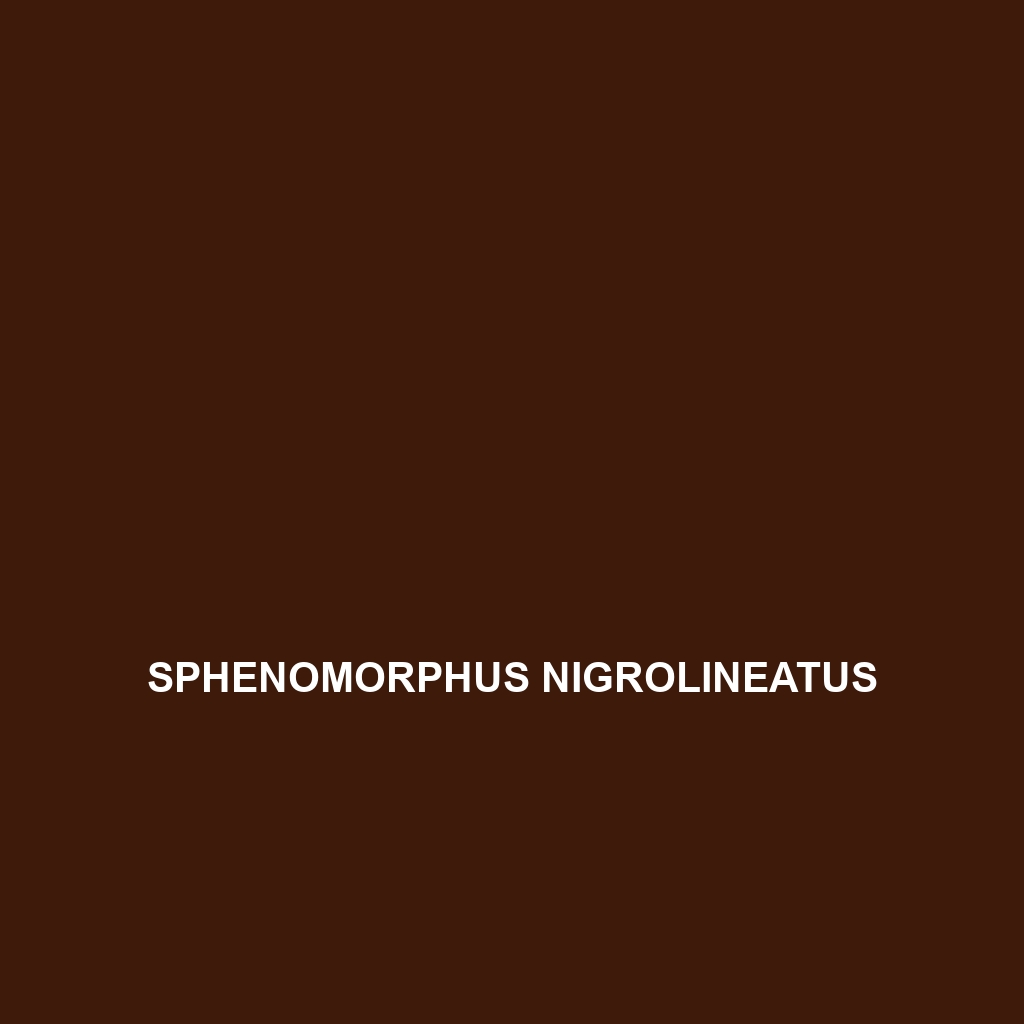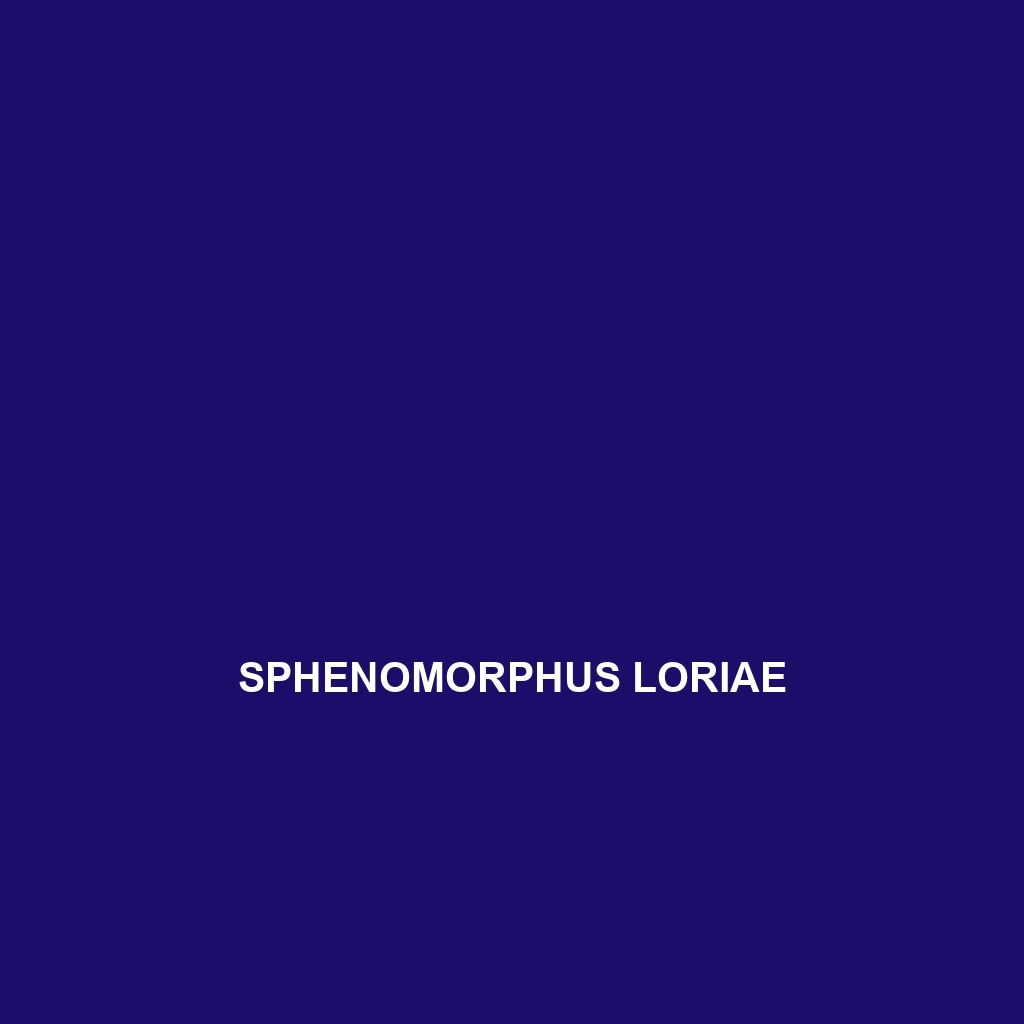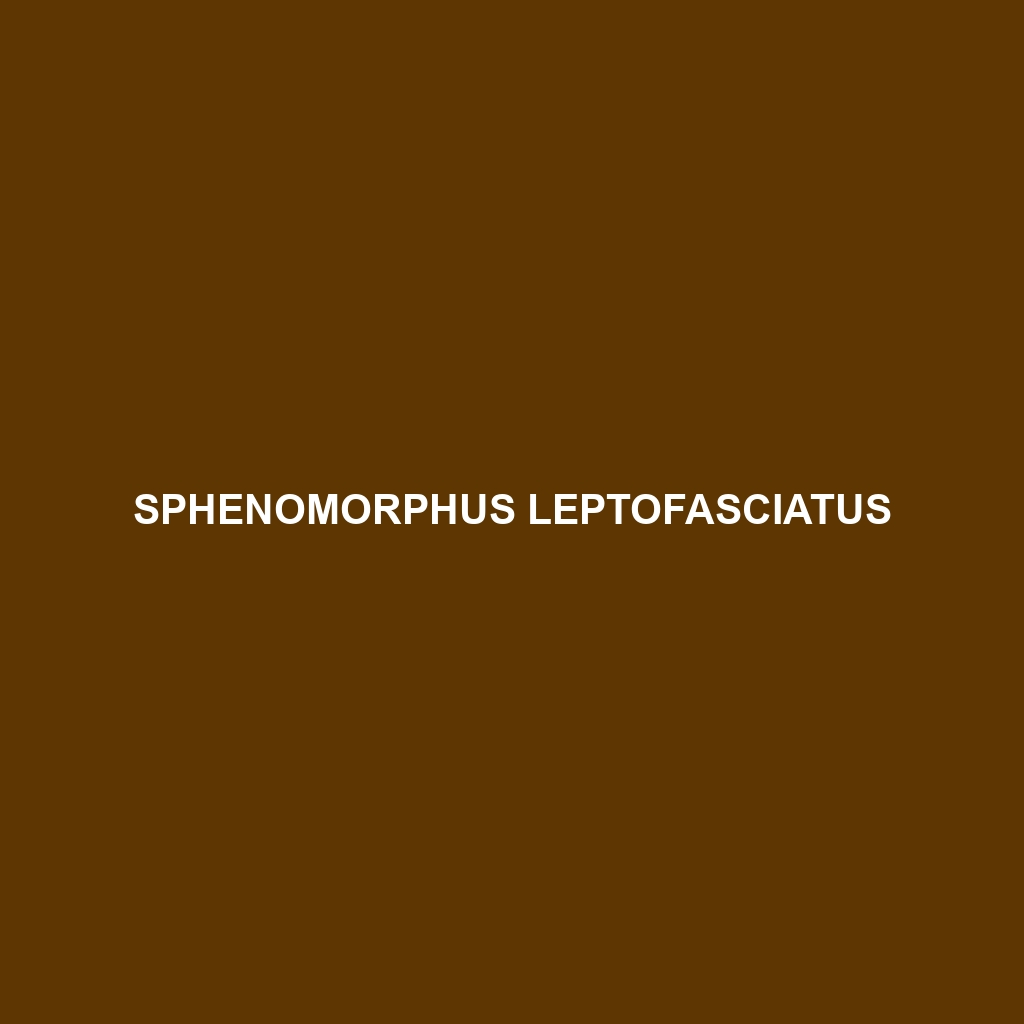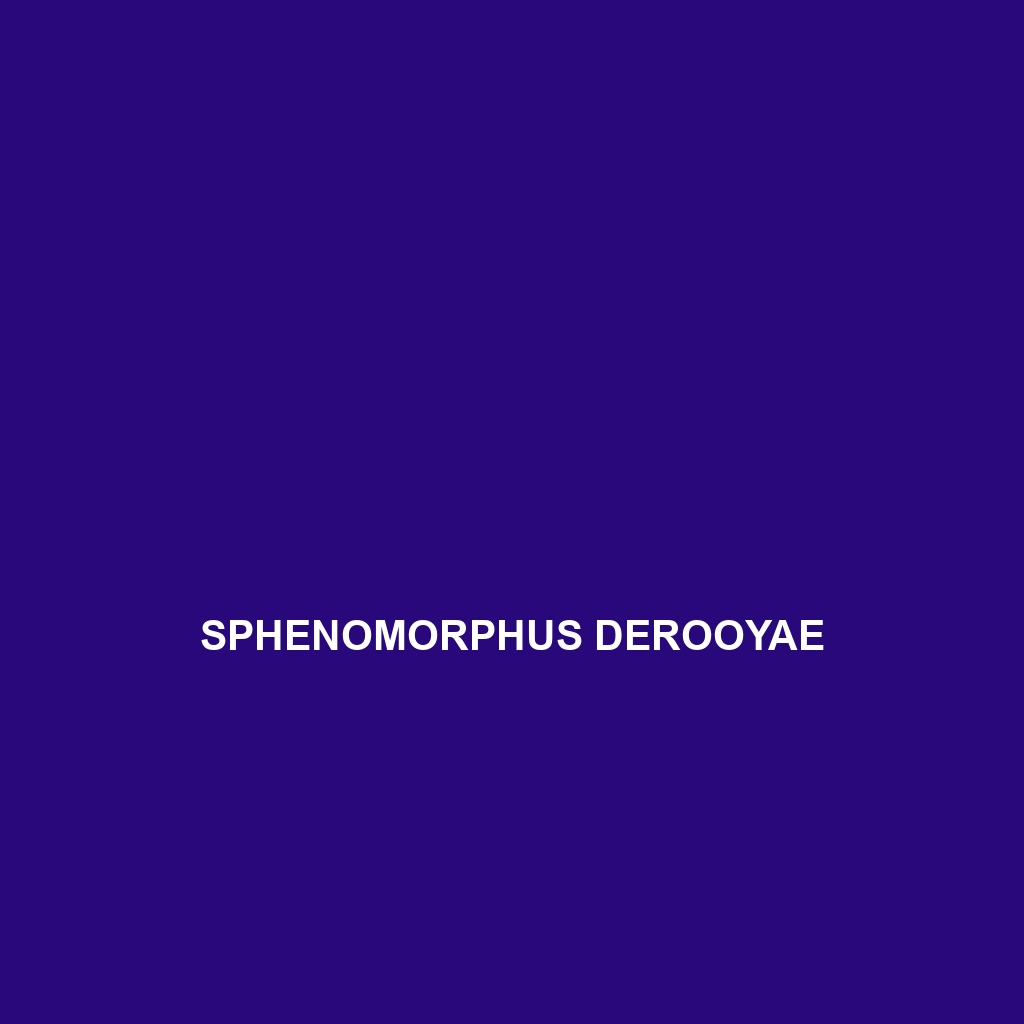<p>Discover the <b>Black-lined Skink (Sphenomorphus nigrolineatus)</b>, a striking Southeast Asian reptile known for its dark body and vibrant longitudinal stripes. This diurnal insectivore thrives in tropical rainforests, contributing to ecological balance by controlling insect populations while showcasing fascinating behaviors and impressive tail regeneration.</p>
Tag: biodiversity in rainforests
Sphenomorphus nigrolabris
<b>Sphenomorphus nigrolabris</b>, commonly known as the Black-labored Skink, is a slender insectivorous lizard native to the rainforests of Southeast Asia, featuring a distinctive dark coloration with yellow labial scales. Adapted to humid environments, it plays a vital role in pest regulation within its ecosystem while exhibiting unique foraging behaviors and minimal parental care post-hatching.
Sphenomorphus murudensis
Murud Skink (Sphenomorphus murudensis): This medium-sized reptile, native to Southeast Asia's tropical rainforests, features a smooth, glossy body with striking coloration and camouflage to thrive in its humid habitat. Primarily diurnal and insectivorous, the Murud skink plays a vital role in regulating insect populations and contributes to the ecosystem's health and biodiversity.
Sphenomorphus muelleri
<p><b>Sphenomorphus muelleri</b>, or Mueller's Sphenomorphus, is a slender, nocturnal lizard from Southeast Asia, thriving in tropical rainforests with its distinctive earthy coloration and superior camouflage. This insectivorous species plays a crucial role in its ecosystem by regulating insect populations and enriching soil nutrients.</p>
Sphenomorphus malaisei
<p><b>Sphenomorphus malaisei</b>, a medium-sized skink native to Southeast Asian rainforests, features a streamlined body measuring 15 to 25 cm and exhibits a rich brown to dark green coloration, aiding in its camouflage. This insectivorous species is known for its agility and unique defense mechanism of tail dropping when threatened, making it a crucial part of its ecosystem.</p>
Sphenomorphus loriae
<p><b>Sphenomorphus loriae</b> is a vibrant, diurnal lizard native to the rainforests of Papua New Guinea and Indonesia, characterized by its slender body, smooth scales, and ability to camouflage. As an insectivore, it plays a vital role in controlling insect populations while also serving as prey for larger predators, making it an important species within its ecosystem.</p>
Sphenomorphus leptofasciatus
Sphenomorphus leptofasciatus, commonly known as the striped skink, is a vibrant greenish-brown reptile found in the rainforests of Southeast Asia, characterized by its distinct longitudinal stripes and a streamlined body measuring 10 to 15 cm in length. This diurnal insectivore plays a vital role in its ecosystem by controlling insect populations and serves as prey for larger predators, making it essential for maintaining ecological balance.
Sphenomorphus fuscolineatus
Discover the vibrant Sphenomorphus fuscolineatus, or striped skink, a captivating insectivore found in the humid rainforests of Southeast Asia. With its distinctive brown or olive coloration and striking black stripes, this agile reptile thrives in moist, shaded environments, playing a crucial role in maintaining ecological balance as both a predator and prey.
Sphenomorphus derooyae
<p><b>Sphenomorphus derooyae</b>, a small, nocturnal lizard native to Southeast Asia's tropical rainforests, thrives in humid environments and displays striking color patterns for camouflage. This insectivorous species plays a vital role in regulating insect populations and maintaining the health of its ecosystem.</p>
Sphenomorphus cyanolaemus
<p><b>Sphenomorphus cyanolaemus</b>, commonly known as the Blue-Winged Skink, is a vibrant insectivore native to tropical rainforests, characterized by its striking blue coloration and agile movements. This unique species thrives in humid environments, helping to regulate insect populations while playing a crucial role in its ecosystem.</p>









